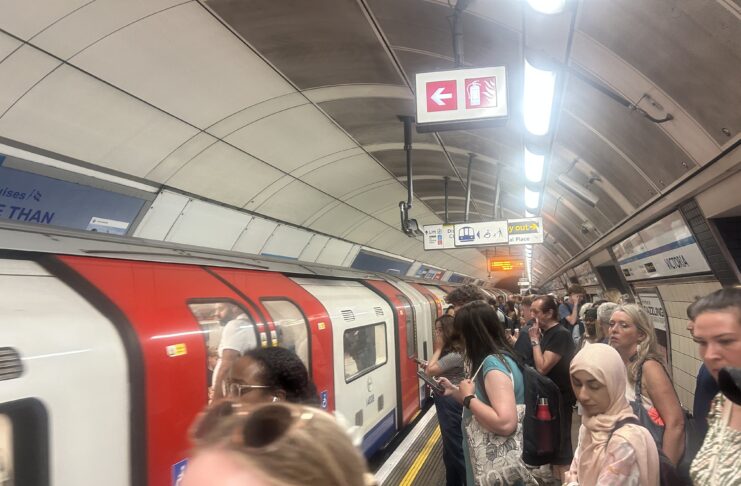A third of UK workers would accept lower pay in exchange for a shorter commute, according to new research that highlights the rising importance of commuting in employee satisfaction and wellbeing.
The findings, from a survey commissioned by benefits platform BHN Extras, shows a need for more sustainable and flexible travel options, with long journey times, high costs and poor public transport the most common sources of frustration among staff.
Among Londoners, 39% said they would take home less pay if it meant avoiding their daily commute. That’s equivalent to around 3.8 million workers in the capital.
Just 29% of the 1,500 employees surveyed had no complaints about their commute. The top issues cited were that it takes too long (42%), costs too much (28%) and is affected by overcrowding, bad behaviour or delays.
“With the focus on hybrid working and work-life balance, commuting is now truly a major factor in how people feel about their jobs,” BHN managing director Chris Ronald said. “The fact that so many workers would take a pay cut for a better journey shows just how important it’s become.”
Ronald said employers should take action now, not only to improve staff retention and morale but to ensure benefits are aligned with modern commuter needs. “Offering flexible working patterns or access to regular or e-bikes makes a difference. The right approach will engage staff, improve wellbeing, boost morale and show employees they’re valued.”
Cycling Seen as Solution — But Support Still Lacking
While cycling was widely recognised as a healthier and cheaper way to travel — with 87% of workers citing benefits such as improved physical health and saving money — only a quarter currently cycle to work, down from 32% last year. Nearly half of those surveyed (44%) said they would be more likely to cycle if their employer provided access to an e-bike.
Adrian Warren, senior director at BHN Extras, described it as “a powerful signal that change is needed”, adding: “Cycling, and particularly access to e-bikes, could be a game-changer.”
Warren said “[t]he appetite is there, with over a third of workers … saying they’d be more likely to cycle if e-bikes were available through their employer. This speaks to a growing shift in commuter behaviour that employers and benefit providers can’t afford to ignore”.
He added that it was a “huge opportunity for the industry to support healthier, happier and more cost-effective commuting for employees, and to help make active travel the everyday choice, not the exception”.
Among those who had started cycling in the past year, 46% of those polled said it improved their mental wellbeing, a key factor for employers focused on staff engagement and workplace happiness.
Despite this, practical and cultural barriers remain. A long commute was cited by 40% as a reason not to cycle, followed by safety concerns (34%), bad weather (31%) and lack of access to a bike (21%). Perceptions around fitness are also shifting, with the belief that cyclists must be “super fit” falling from 23% last year to 13% in 2025.
Flexible Working and E-Bike Schemes Could Bridge the Gap
The research, carried out by London-based pollster Sapio Research in May-June 2025 among 1,500 UK employees who commute to work at least once a week, found that 36% of workers would be encouraged to cycle if they were given flexible hours. That would make it easier to travel outside peak times or avoid poor weather. Others said they would welcome support in accessing bikes or cycling equipment through workplace schemes.
Steve Edgell, chair of campaign group the Cycle to Work Alliance, called the research “a clear signal that UK workers are crying out for a better way to commute”, adding: “Cycling is a practical, proven solution that improves wellbeing, saves money and boosts productivity”.
Edgell said the alliance was “calling on more employers to embrace the [Cycle to Work] scheme and offer access to bikes and e-bikes as a simple but powerful workplace benefit. It’s not just good for people; it’s good for workplace productivity, and good for the planet.”
According to BHN Extras, only 23% of UK workers say they “love” their commute — but among those who cycle, that figure rises to 40%. The average cost of getting to work is now £122 a month, rising to £192 in London.


